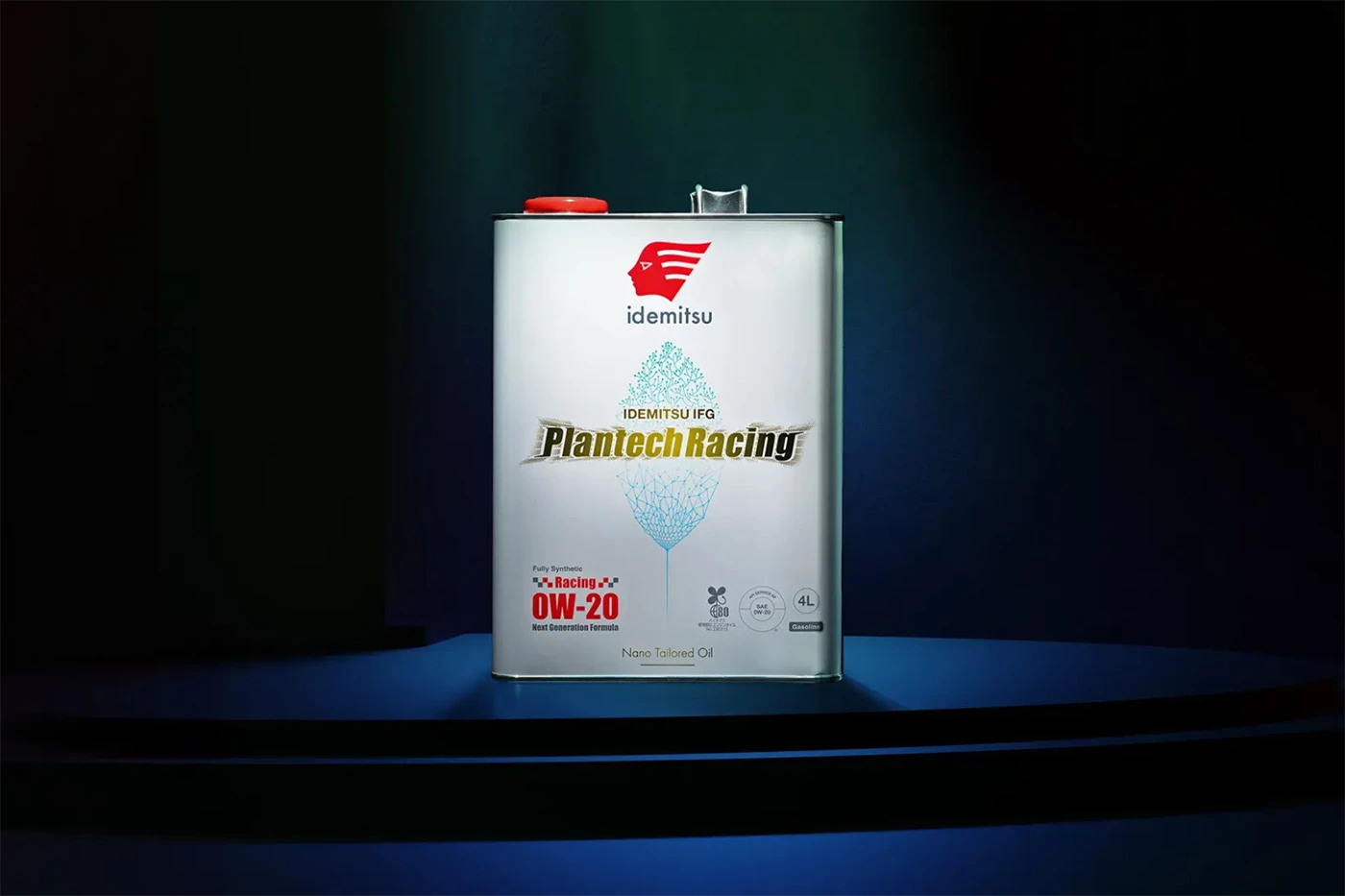Love racing, but not a fan of the sport's carbon footprint? Idemitsu is hoping to bring that down a notch with its new Plantech Racing engine oil, which uses plant-based raw materials for more than 80% of its base oil. The company says this formulation's carbon footprint its 82% lower than that of mineral oil.
First announced in August, Plantech Racing oil promises to deliver track day performance, while also meeting the stringent new SP certification from the American Petroleum Institute that was made official this year. The Japanese petrochemical giant says this formulation incorporates molybdenum to reduce power loss caused by frictional resistance, along with "high-viscosity plant-based esters that thicken the oil film and improve protection performance."
Since it was unveiled this year, Plantech Racing oil has already proved its mettle: Idemitsu noted it was used to run a Mazda Spirit Racing Roadster CNF concept car that participated in the grueling Suzuka Super Taikyu Endurance Race held in Japan this September. That's a 5-hour-long test of grit and skill, so if held up through the challenge, it should be suitable for use in similar events.

It's worth noting that race car oil formulations have to meet certain regulations, and are different from engine oils made for road cars. Race car engines are designed to deliver maximum power while being pushed to full throttle for the entire duration of a race – and that means a lot of heat and pressure inside the engine. They require an oil change every 500 miles (804 km), and you're not usually worrying about their efficiency or longevity like you would with a road car that you'll live with for several years. The latter can use the same engine oil for 5,000 miles to even 20,000 miles before needing a change, thanks to fully synthetic formulations and new chemical processes.
Other factors that differentiate racing engine oil from from road car engine oil include engine design (the kinds of materials used, how much metal-to-metal contact takes place, and so on), viscosities, permitted additives, and zinc content (referred to as ZDDP – this boosts performance in racecars that don't use catalytic converters, but will ruin a street legal car with a converter-equipped exhaust in large quantities). All of this is to say that racing oils are specifically formulated for performance vehicles and demanding circumstances – and you probably shouldn't use them in your own car.

That said, if you happen to be in Thailand, Australia, Singapore, or Malaysia, you can get your hands on Plantech Racing oil right now. A liter (0.264 gal) will set you back by about US$67; that's about double the cost of Idemitsu's IFG7 oil for turbocharged cars, with a similar 0W-20 viscosity grade. It's not exactly a zero-emission solution, but hey, we'll take every win for the environment we can get.
Source: Idemitsu via Business Wire






